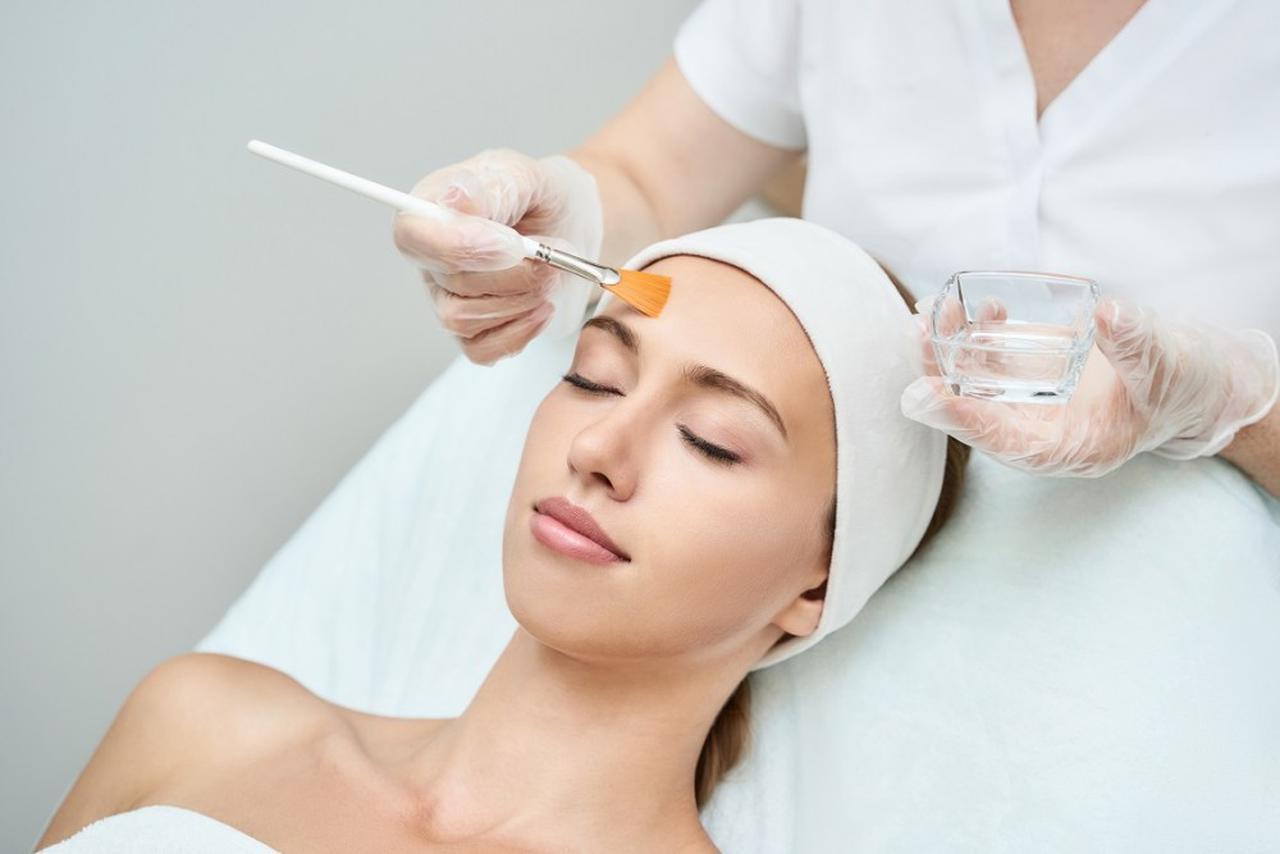Dry, rough skin can make your complexion seem dull, and sometimes face lotion just isn’t enough to restore smooth, glowing skin. A chemical peel, however, can rejuvenate your skin and give you a fresh face. Read on to learn more about chemical peels.
Chemical peels are the fourth most popular minimally invasive cosmetic treatment. About 1 million people receive a chemical peel each year, according to the American Society of Plastic Surgeons (ASPS).
Chemical peels continue to make the top 5 list for a few reasons. They refresh your skin’s appearance and boost your skin’s health. They’re also effective for treating a variety of skin issues, including sun damage, age-related changes, and even acne scars.
Dr. Renelle P. Lim, Dr. Ilya Lim, and the team here at the Institute of Dermatology & Oculoplastic Surgery in Sarasota, Florida, offer chemical peels to help our patients look and feel their absolute best.
If you’re ready to give your face a fresh look, here’s how a peel could help you achieve your aesthetic goals.
How chemical peels work
You’re likely familiar with exfoliation treatments for your skin. Facial scrubs, dermaplaning, and tools such as exfoliating mitts are all examples of manual exfoliants that physically slough away dead, dull skin.
Chemical peels are another type of exfoliating treatment — except they rely on chemical solutions instead of manual exfoliating to remove dead skin.
The chemical solutions 一 which contain different acids, such as alpha-hydroxy acid, beta-hydroxy acid, trichloroacetic acid, and phenol 一 gently loosen the layers of skin where imperfections such as scarring, discoloration, roughness, and other damage occur. Depending on which solution is used, the chemical peel penetrates different layers of your skin.
Superficial, or light peels, penetrate the top layer of skin, your epidermis. These peels have a shorter downtime than other peels. A medium peel penetrates deeper to target sun-damaged skin, fine lines and wrinkles, minor acne scars, and hyperpigmentation. Because medium peels penetrate beyond your epidermis, they require more downtime than a light peel. Deep chemical peels are the most intense type of peel and penetrate deeper than the other two types of peels. These require the most downtime; you may need up to 21 days to fully recover.
Regardless of which type of peel you receive, the overall process is similar. Dr. Renelle P. Lim or Dr. Ilya Lim carefully applies the exfoliant acid to your skin, where it sits for a specified length of time. We then rinse off the solution and neutralize your skin.
Once the solution is removed, we provide you with specific after-care instructions. Post-chemical peel instructions vary depending on what type of peel you receive, but in general, it’s good practice to:
- Avoid UV exposure after a peel
- Refrain from applying makeup (the number of days may vary based on your peel)
- Follow all post-peel instructions
- Apply any creams or emollients if instructed to do so
It’s normal to experience redness and peeling after a peel. This is part of the process. As the dull skin sloughs off, new, smoother, softer skin is revealed.
What can a chemical peel do for you?
Offering different types of chemical peels ensures you can get the treatment you need to address your specific skin concerns. Dr. Renelle Lim and Dr. Ilya Lim customize each peel to meet your needs for the best possible results. This is why we begin each consultation with an examination, a medical history review, and a review of your aesthetic goals.
During your consultation, you may discover that chemical peels can address many issues at once. Chemical peels are so versatile that the ASPS refers to them as “one of the most cost-effective ways to improve the appearance of your skin.”
Here at the Institute of Dermatology & Oculoplastic Surgery, our team may recommend a chemical peel that can target:
- Inflammation
- Sun damage
- Wrinkles and fine lines
- Acne
- Acne and injury scars
- Age spots
- Hyperpigmentation
- Texture issues, including roughness or dryness
Chemical peels aren’t for everyone, but that doesn’t mean you’re out of options. In addition to chemical peels, we also offer cosmetic treatments such as skin resurfacing, Botox ®, and fillers.
Refresh your appearance with a chemical peel
Whether you’re planning for a big day such as a wedding or a reunion, or you just want to treat yourself, be sure to schedule your peel with plenty of time to heal afterward. If you’re ready to get started and see what a chemical peel can do for you, call or message us today to book a consultation.

